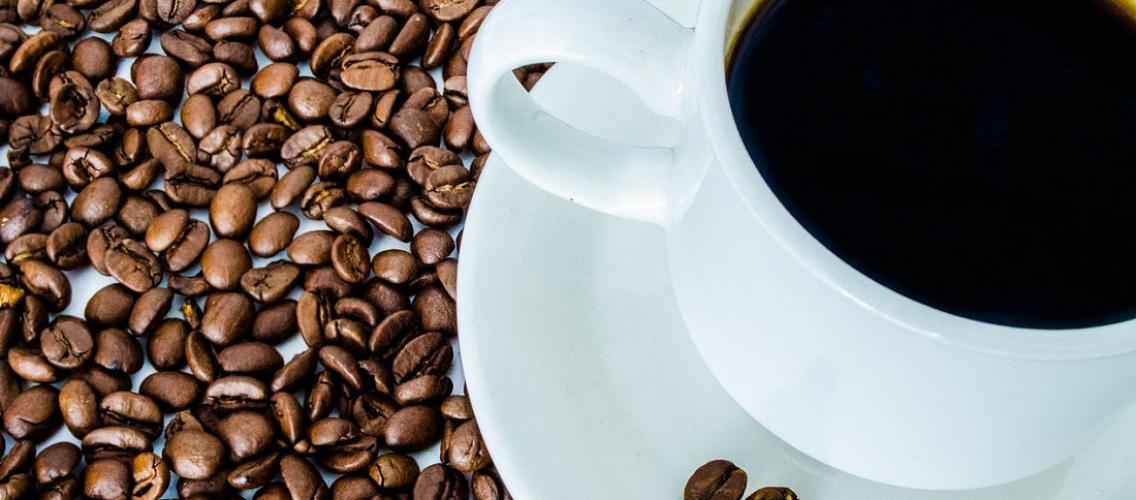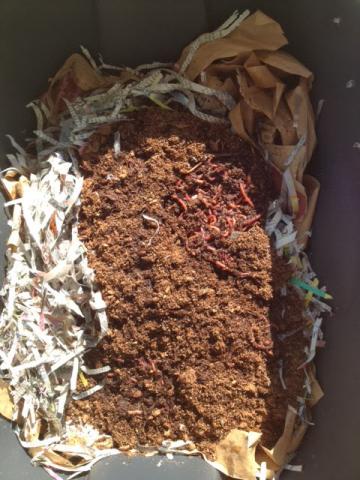
Using Coffee Grounds in the Garden
Backyard Gardener - Yavapai County Cooperative Extension

Dr. Linda Chalker-Scott, Extension Urban Horticulturist and Associate Professor at Washington State University, has taken it upon herself to explore anecdotal gardening “miracle products.” Along the way, she has provided excellent product reviews and dispelled various gardening myths. Chalker-Scott has also written an excellent book called The Informed Gardener. In an article from 2009, she wrote: "Coffee Grounds – Will They Perk Up Plants?" Below I will share some of her observations about the use of coffee grounds in home gardens and landscapes.
Increasing numbers of people are using spent coffee grounds as mulch and these people are claiming they repel cats, kill slugs, prevent weeds, aerate and acidify the soil, provide nitrogen, attract earthworms, and more. There is a body of research about the uses for the byproducts of coffee processing (husks, hulls, and waste water), but little about using actual coffee grounds in gardens and landscapes. Coffee grounds are often available in large quantities from coffee vendors and many people use them as mulch (applied to the soil surface), for a direct soil amendment, and add them to their compost.
Coffee beans are seeds that contain nitrogen-rich proteins needed for germination and growth. Protein comprises over 10% of coffee grounds. In fact, the carbon-to-nitrogen ratio of coffee grounds can be an ideal ratio for plant and soil nutrition (as low as 11:1). Since coffee is extracted in water, the compounds that are not water soluble (oils, lipids, triglycerides, and fatty acids) remain in the grounds along with cellulose and indigestible sugars. Lignin, phenolics, and essential oils are also left over from the brewing process and these compounds are reported to have antioxidant and antimicrobial properties.
Soil-borne bacteria and fungi break down the various chemical components of coffee grounds after several months. Earthworms are also able to use this food source. Earthworms consume coffee grounds and deposit them deep in soil. This may account for noted improvements in soil structure such as increased aggregation. Humic substances, which are important chemical and structural soil components, are ultimately produced through organic matter degradation – this includes degradation of coffee grounds.
Many gardeners assume that coffee grounds are acidic, but this does not hold true experimentally. The pH of decomposing coffee grounds in these experiments ranged from 4.6 (mildly acidic) to 8.4 (somewhat alkaline). The pH also changes over time and you should not assume that it will always be acidic. As for soil-borne diseases, coffee grounds do appear to suppress some common fungal rots and wilts (Fusarium, Pythium, and Sclerotinia) as well as some bacterial pathogens (E. coli and Staphylococcus). Coffee ground composts and mulches enhance germination of some seeds while inhibiting germination of others.
Dr. Chalker-Scott has synthesized coffee ground research results to make the following recommendations. In compost, limit coffee ground content to no more than 20% of the total compost volume – more than 30% has often been detrimental. Additions of diverse raw materials to compost should ensure a diversity of microorganisms. Don’t assume coffee grounds will make an acidic compost; pH levels will fluctuate over time.
In mulch, since coffee grounds are finely textured and easily compacted, they can create a barrier to moisture and air movement, especially when applied in thick layers. Dr. Chalker-Scott recommends against using pure coffee grounds as mulch. Instead, try using a thin layer (no more than half an inch) of coffee grounds and cover with a thicker (four inches) layer of coarse organic mulch like wood chips.
This is not the first time I have referenced Dr. Chalker-Scott’s work in the Backyard Gardener. Visit the Backyard Gardener website and access the online version of this column for a link to Dr. Chalker-Scott’s website and a direct link her article: Coffee Grounds – Will They Perk Up Plants?
- Follow the Backyard Gardener on Twitter
Other Resources
- Coffee Grounds and Composting - Oregon State University Extension Service
- Coffee as Fertilizer? - University of Illinois Extension
- Recycling Coffee Grounds in the Garden - Penn State Cooperative Extension

